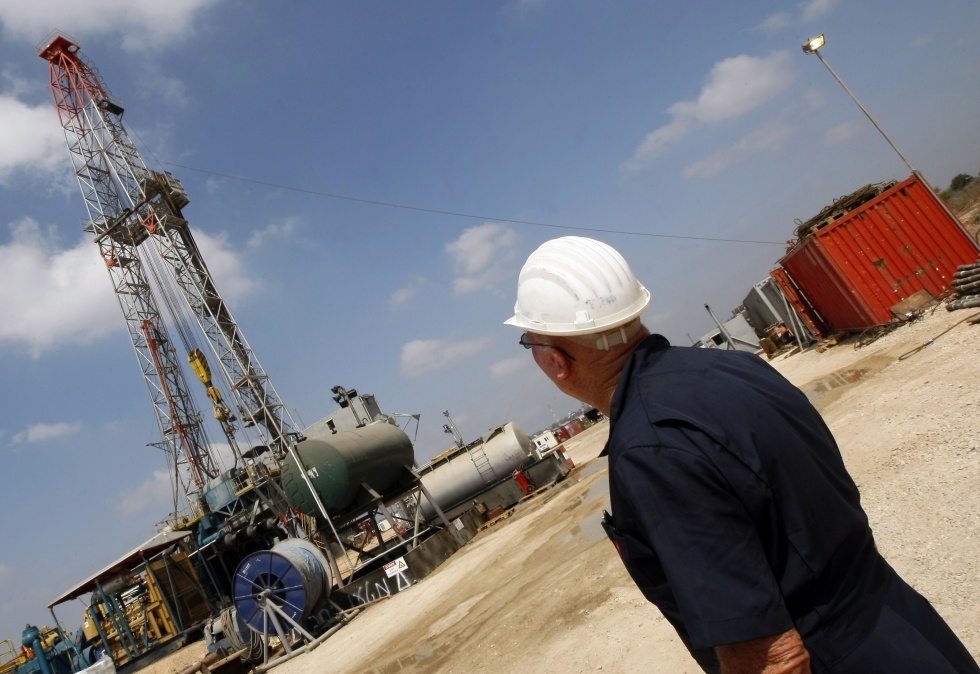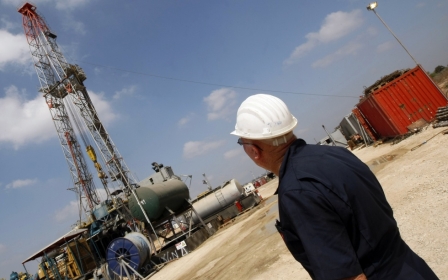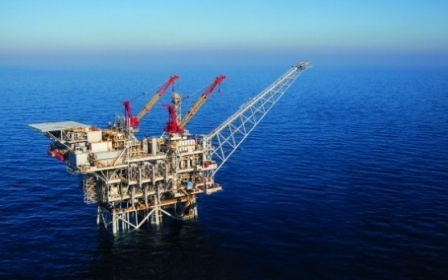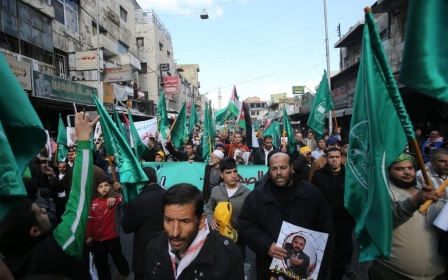Palestinians call on PA to cancel Israeli gas deal

RAMALLAH, Occupied Palestinian Territories – Palestinian civil society leaders and politicians have called on the Palestinian Authority to pull its backing from a $1.2bn deal that would see Israeli gas supplied to the occupied territories for the next 20 years.
Opposition to the deal, one in a series of export agreements between Israel and its neighbours initiated in the past year, come a month after Jordanian officials said they had suspended talks over a $15bn gas deal with the same companies involved in the Palestinian deal.
Last January, the US-based Noble Energy and Israel’s Delek Group, partners in Israel’s largest offshore gas field, Leviathan – a whale-like creature mentioned in the Bible and Paradise Lost – signed the gas deal with the privately-owned Palestine Power Generation Company (PPGC).
The gas would reportedly be used to fuel a $300m electric power plant in Jenin – the first Palestinian power plant in the West Bank - which PPGC says it is in the process of developing.
But Palestinian politicians and activists who spoke at a Boycott, Divestment and Sanctions press conference here on Tuesday said the deal has been made behind closed doors, without consideration for alternative trading partners and in the absence of clear Palestinian laws on natural resource and energy governance.
“I think there is corruption because there is no law that would monitor and regulate this sector,” said Azmi Shuaibi, commissioner of Aman, a Palestinian anti-corruption watchdog. “This sector is hugely corrupt.”
Campaigners question why the deal is for 20 years while previous gas deals are believed to have been for one or two-year terms and also why Qatar and Venezuela, potential gas exporting alternatives to Israel, were not considered.
“This deal will put burdens on the Palestinian people for a long period,” said Khalida Jarrar, a member of the Palestinian Legislative Council. “The people are not partners in this agreement.”
Jarrar and others who spoke on Tuesday indicate that they see the Palestinian gas deal as a keystone in Israel’s export negotiations underway with its neighbours, including Jordan and Egypt.
“Such an agreement will open the door for Egypt to sign a deal, claiming Palestinians signed, why shouldn’t we?” Jarrar said.
The PLC member said she had been in touch with Jordanian parliamentarians who voted on 10 December, in the midst of protests, a Jordanian BDS campaign and a petition against the deal signed by 8,000 Jordanians, to reject their government’s decision to buy Leviathan gas. Their vote was non-binding, allowing the government to move forward with the deal as it chooses.
But since the vote, several developments have cast further doubt on the deal. On 23 December, Israel’s Antitrust Authority Commissioner David Gilo announced he might designate Delek and Noble’s ownership of Leviathan and another gas field, Tamar, as a cartel and petition their ownership to be reorganised. The consequences and specifics of his decision have yet to be clarified.
A week after his announcement, Jordanian officials told Bloomberg that the talks with Noble and Delek were suspended in light of Gilo’s announcement and the country planned to sign an agreement with British Gas Group to buy gas from fields offshore from the Gaza Strip.
BG Group has owned the rights to the Palestinian Gaza Marine license off Gaza’s shores since 1999, but the gas has stayed in the ground as talks to develop the field have reportedly remained in deadlock.
Last week, Middle East Eye asked BG Group if the company could confirm whether it was in talks with Jordan about the Gaza Marine gas and, if so, whether BG anticipated that it would be able to put infrastructure in place shortly to extract gas.
“We continue to investigate options for the development of the Gaza Marine Gas,” a BG spokesperson told MEE. “We have not given a date for a final investment decision.”
BG declined to elaborate.
Also in play is Egypt which was reportedly in talks with Noble and Delek earlier this month about importing Israeli gas from the Tamar field, which would be a reversal of a years-long flow between the two countries that ended in 2011.
The sweetheart deal between the two countries saw Israel pay some of the lowest natural gas prices in the world to Egypt and resulted in the conviction of two Egyptian businessmen – now freed – with losses as a result of under-pricing of gas under the deal estimated at $11bn.
In recent years, US officials, who have said they were involved in the initial meetings between Noble Energy and Jordanian officials, have pushed the gas deals as a potential stabilising force for the region.
“It can be an opportunity for bolstering security and enhancing prosperity for all those operating in these areas,” Amos Hochstein, the US State Department’s special envoy for international energy affairs, told Globes, the Israeli business journal, in January.
“There is so much potential here that it would be a pity to let it get away. There’s a short window of opportunity here and we want to support it,” Hochstein said.
For Jarrar, the gas deals are not a path to peace, but a premature normalisation of relations between Israelis and Palestinians ahead of any future final status agreement.
“[The Israelis] want to be sure that all of the natural resources that we have, that there is already an agreement if we have our independence in the future,” she said.
Dr Mamdouh A'ker, a commissioner with the Commission for Human Rights in the Palestinian Territories who also spoke on Tuesday, said in addition to boycotting Israeli gas, Palestinians should keep the gas they have underground until the laws around natural resources are clear.
“We have to keep our gas for the next generation,” A'ker said.
New MEE newsletter: Jerusalem Dispatch
Sign up to get the latest insights and analysis on Israel-Palestine, alongside Turkey Unpacked and other MEE newsletters
Middle East Eye delivers independent and unrivalled coverage and analysis of the Middle East, North Africa and beyond. To learn more about republishing this content and the associated fees, please fill out this form. More about MEE can be found here.




